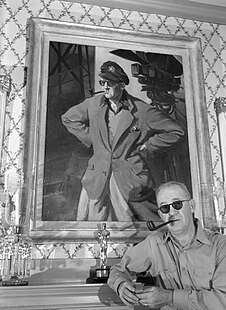
Cinema in Estonia is the film industry of the Republic of Estonia. The motion pictures have won international awards and each year new Estonian films are seen at film festivals around the globe.
Kullar Viimne is an Estonian director, scriptwriter, editor and cinematographer.
Ülle Kaljuste is an Estonian stage, film, television and radio actress.

Anu Lamp is an Estonian stage, film, television and voice actress, stage director, translator and instructor.
Liina Tennosaar is an Estonian stage, film and television actress.
Kiiri Tamm is an Estonian stage, television and film actress and stage manager.
Ellen Liiger, was an Estonian stage, television, radio and film actress and theatre teacher. Her stage career began at age six and lasted until she died in 1987.
Ingrid Isotamm is an Estonian stage, film, radio and television actress.

Piret Kalda is an Estonian stage, television and film actress.

Ursula Ratasepp is an Estonian stage, film and television actress.

Kadri Rämmeld is an Estonian stage, film, and television actress.

Britta Soll is an Estonian stage, film, and television actress and former fashion model.
Merle Palmiste is an Estonian stage, film and television actress.
Jörgen Liik is an Estonian stage, film and television actor.
Salme Poopuu was an Estonian filmmaker and actress. Poopuu's career in the film and television industry spanned nearly fifty years working in a variety of positions, such as an actress, production assistant, production manager, producer, assistant director and director.

Merle Jääger is an Estonian television, stage and film actress, poet and author who frequently uses the pen name Merca. Initially associated with the burgeoning Estonian punk rock scene of the early to mid 1980s, she has been described as the "bard of protest". Her career as an actress began in her early 20s and she has received a number of high-profile awards for stage roles.
Indrek Taalmaa is an Estonian stage, television, voice, film actor, and theatre director whose career began in the early 1990s.
Ines Aru is an Estonian stage, radio, voice, television, and film actress whose career began in the early 1960s.

Maarja Nuut is an Estonian singer and violinist. After first studying classical music, she turned to folk, adopting the village style of traditional Estonian songs. She debuted as a solo artist in 2013, winning the Artists Prize at the Tallinn Music Week. In 2016, she began to collaborate with Hendrik Kaljujärv, who creates his own abstract electronic sounds. Together they have formed a successful duo, releasing recordings and performing at international festivals.

Liisa Pulk is an Estonian stage, television, voice, and film actress whose career began in 2010.












